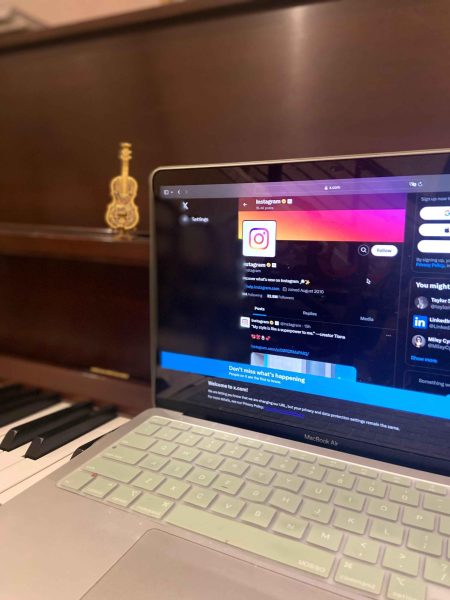Many in recent years have debated on the topic of phones in current society. While prior generations often criticize the “screenagers” of the youth for their reliance on cellular devices, they have undeniably become a constant influence to the current generation.
Camas High School (CHS) staff have expressed concerns regarding cell phones. The 2024-2025 school year school-wide “phone ban” accurately demonstrates this sentiment.

As students enter classrooms at the beginning of each period, they are required to “park their phones”, as one teacher put it, in the “phone hotel” (a reference to phone pouches that many teachers keep in the front of their classrooms).
This new policy derived from the rising concern that students were being distracted by their cellular devices during class time. However, this trend is not unique to school hours.
“Kind of any time I have free time, I go on my phone, which is kind of bad. Before practice I’ll go on it, after practice I’ll go on it, during the car ride I’ll go on it–It’s a lot–it’s really addictive. My average screen time is 4-5 hours a day”, CHS sophomore Mila Cha said.
“When I do my (home)work, I can’t finish it in one go–I need phone breaks at certain points—so I feel like all-in-all, I spend about 2.5 hours on my phone while I’m doing my homework”, CHS junior Kathy Tang said.
This behavior is often criticized by older generations. Many argue that the attention span of teenagers is getting shorter as a result of constant phone use. In recent years, Gen Z teenagers have been titled “screenagers” due to their dependency on their devices. From a more educational perspective, this has raised concerns amongst teachers.
“I just think that on an overall basis, they’re (students) just less inclined to read because they can’t just flip to the next TikTok or reel, the next page is awaiting students. Sustained focus and depth of comprehension is what students are lacking”, Freshman English teacher Greg Macgowan said.,
Many teachers worry about students’ desires to actively learn and stay curious. Because there is so much accessible information online, teachers often feel that students have lost their interest in actively seeking new information.
Amidst these suspicions, teachers are noticing a significant decline in the extracurricular activities students partake in after school. Some teachers reminisced about their teenage years when there was no internet access.
“I used to play a lot of music after school. I would go home after school and play guitar for like 3-4 hours until dinner time. I also had a job at Taco Bell in high school. I also used to spend a lot of time on the telephone and talk to a lot of my friends through calls. I also read and kind of zoned out sometimes too. Of course, there was always homework, although there was a lot less then than there is now”, CHS English and history teacher Sam Greene said. 
“I played several sports. Went from one to another: played football in the fall, hockey in the winter, baseball in the spring. Back then, sports were not so specialized where you were not obligated to go to ‘such-and-such’ camps and I was encouraged to participate in [sports camps] by my folks. I also had jobs in high school after practice: I worked in a sawmill and earned some money”, Macgowan said.
Many see this argument as a complement to a bigger issue. According to students, this is due to their workload, which they believe is heavier than previous generations.
“From 5 to 2 am, I work on school work (homework and studying) and then wake up at 4 am to attend zero period at school,” Tang said.
Most teenagers claim they are conscious of their heavy phone use.
“I think that the older generation has a negative perception about us [Gen Z] because of the phone-obsessed kids; you hear so many horror stories about phones and how kids interact online. I think, however, that they would find comfort in knowing that we don’t use it just for social media because that’s what a lot of them assume,” Tang said.
Social media and phones have become a crucial part of the current generation’s culture. In comparison to the analog elements of the “pre-electronic age”, the online community is a sub-identity of Gen Z in the digital age.
“I think the older folks don’t understand how immersed they’re in technology. The thing that is concerning the discipline of self-reliance. That’s what I want them to understand. It’s not an indictment. What are you doing without the technology? I want my students to realize that they are not fully dependent on technology for a living, simply to be utilized as a tool”, Macgowan said.
Whether the electronic age and concerns regarding it are unique to this generation is still in question. Younger generations are, according to many at CHS, more attracted to “shiny, new products” while older generations are opposed to this change. However, when weighing the impact of the online footprint in society, the phone remains a key focal point.





































